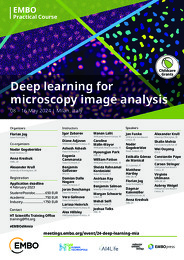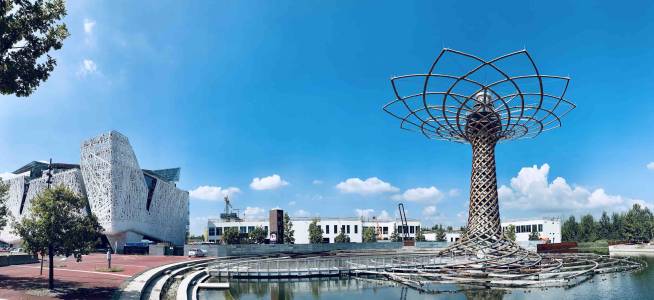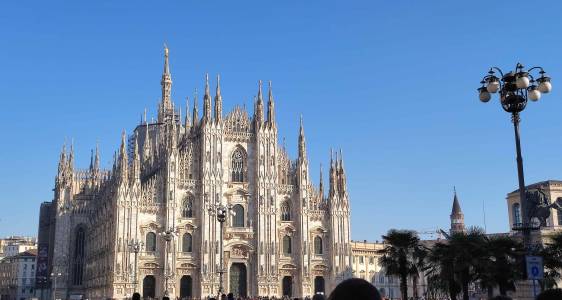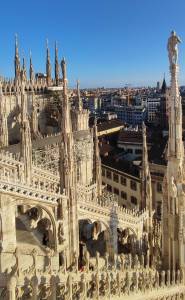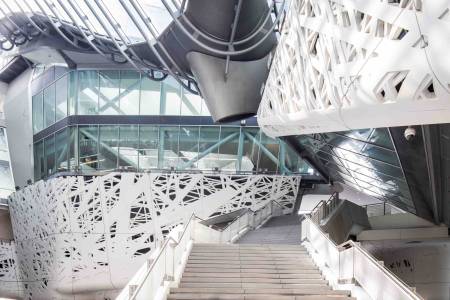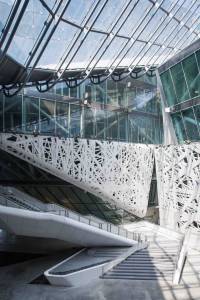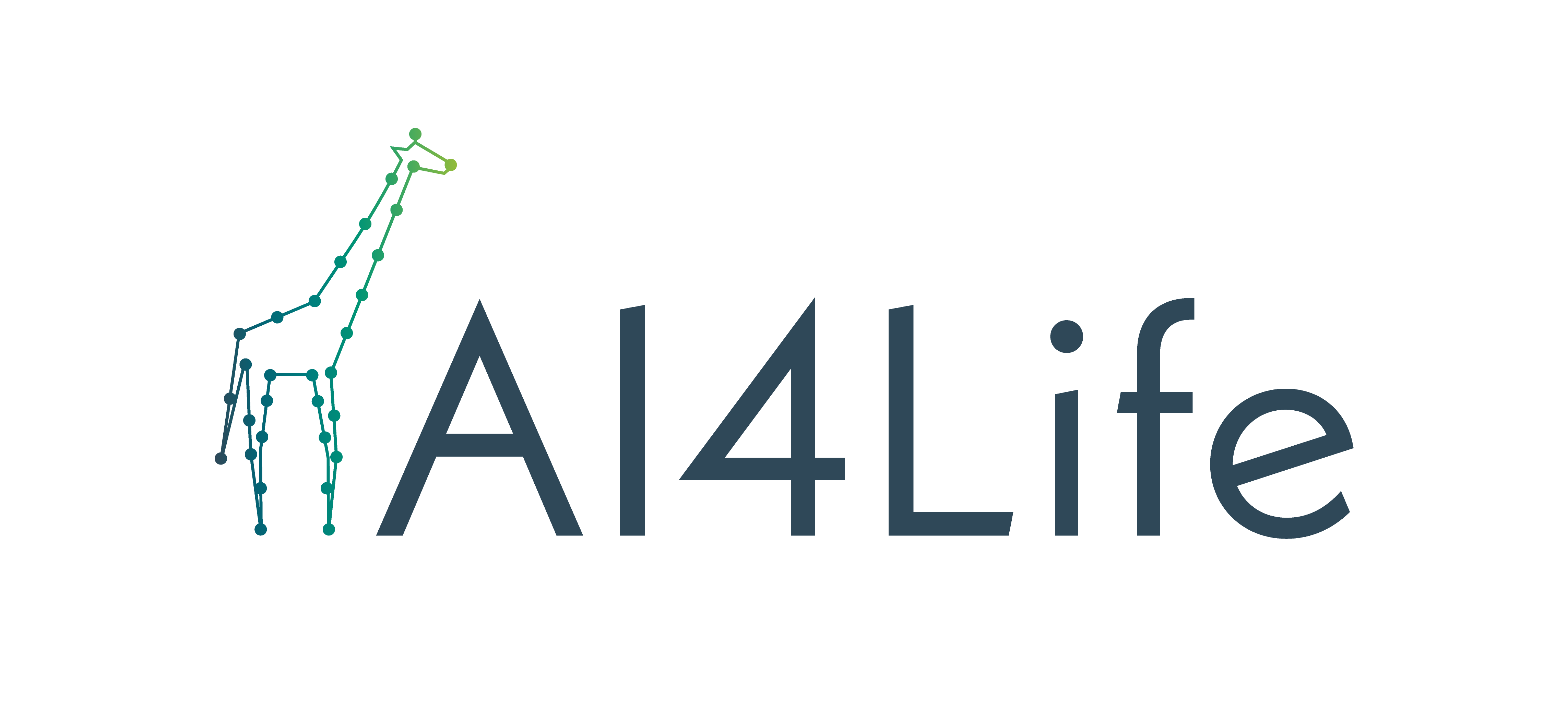About the Practical Course
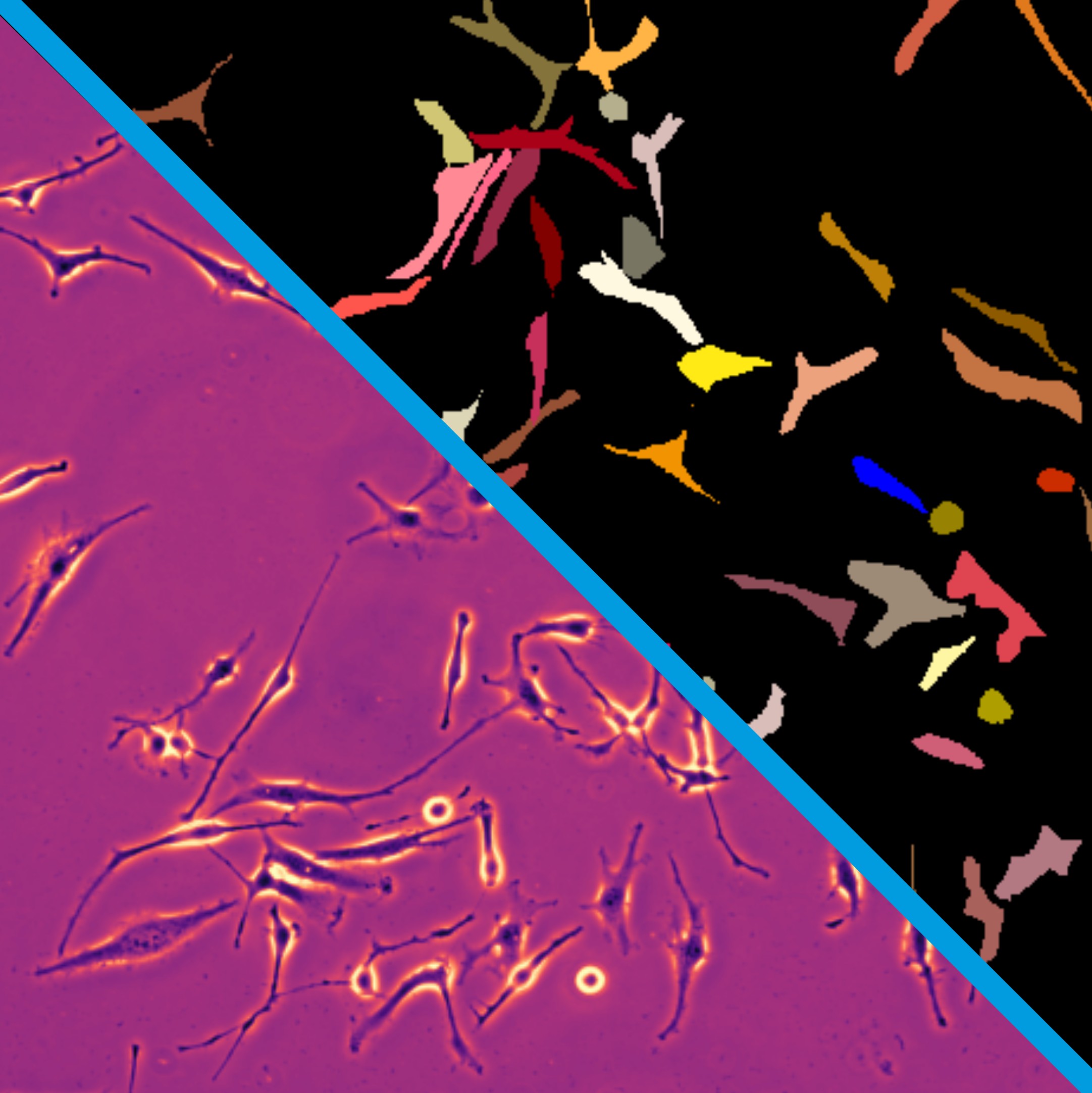
The ability to analyze large amounts of microscopy data is essential to modern life-science research. Indeed, the future state of bioimage analysis is progressively defined by the development and application of tools that relies on deep learning (DL) and artificial intelligence. Enabling users to understand how these tools and models can be used on their datasets is part of the challenge that the bioimage analysis community is currently facing.
The goal of this course is to familiarize researchers working in the life sciences with state-of-the-art DL techniques for microscopy image analysis, including (but not exclusive to) image restoration, segmentation, translation, registration, and tracking. The course will be composed of pre-course “fundamentals”, on-site lectures, tutorials, hands-on projects, and networking activities.
During the first five days participants will have the opportunity to learn about the technical aspects of deep learning and its applications. Lectures and exercises will be given by leading figures in the field of bioimage analysis, together with the support of the most promising newcomers who will join as full-time tutors.
During the last four days, participants will be divided in teams supported by all instructors, with the scope of solving real analysis problems on their own microscopy data. This will ensure that participants can later use their newly acquired skills for tackling similar problems at their home institutions.
In summary, participants will leave the course with a practical understanding of the power and limitations of DL, along with insights into the enabling underlying theory. The goal is to empower participants with the knowledge they need to develop their own DL-powered approaches in the context of their own research projects.
Call for Sponsorships
If you are an organisation, research infrastructure/community or a company and you wish to contribute to the EMBO-DL4MIA Practical Course by sponsoring the event and foster training of talented scientists on bioimage analysis, please submit your proposal by applying to the Call for Sponsorships:
Deep Learning for Microscopy Image Analysis (EMBO-DL4MIA) - Human Technopole
Do not hesitate to get in touch with training@fht.org if you have any questions.
About EMBO Courses and Workshops
EMBO Courses and Workshops are selected for their excellent scientific quality and timelines, provision of good networking activities for all participants and speaker gender diversity (at least 40% of speakers must be from the underrepresented gender).
Organisers are encouraged to implement measures to make the meeting environmentally more sustainable.





